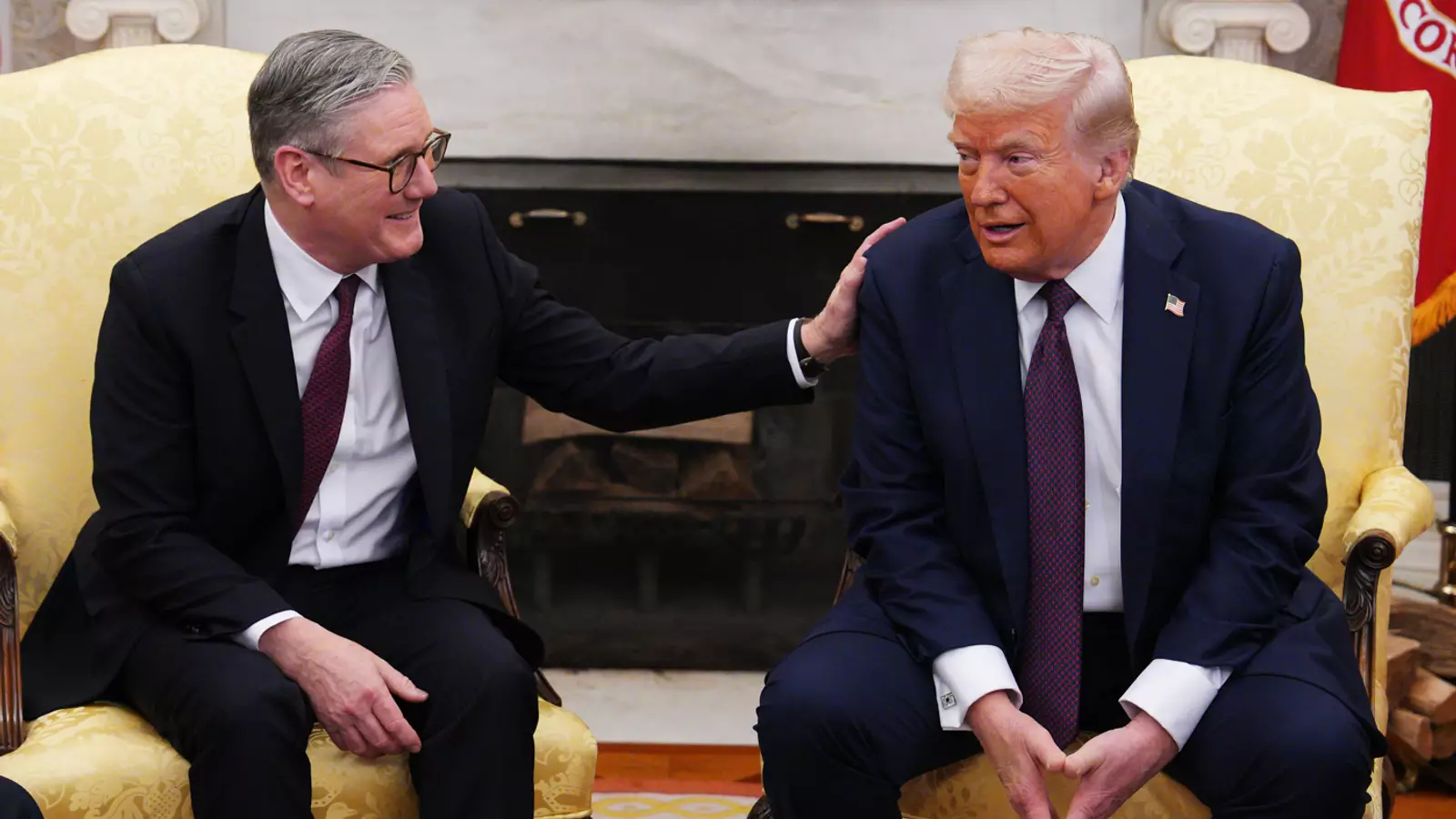In the unrelenting arena of international trade, the stakes have escalated dramatically, especially for the UK as it faces potential new tariffs imposed by the United States. Sir Keir Starmer, the UK Prime Minister, has cautiously asserted that trade negotiations with the US are progressing well. Nevertheless, he reassured the public and critics alike that a “knee-jerk” reaction to the anticipated tariffs is neither prudent nor effective. This sentiment reflects not only the complexity surrounding these negotiations but also a broader strategy that seeks to avoid retaliatory measures that could spiral into an all-out trade war. But can a calm approach really safeguard Britain’s economic interests, or is it simply a recipe for further economic despair?
Starmer’s rhetoric reveals an interesting dichotomy: on one hand, he is advocating for rational dialogue and composed negotiation, yet on the other, the very nature of tariffs signifies an impending economic conflict that no nation desires. His commitment to remaining calm amidst the chaos speaks volumes about his understanding of the nuance in global trade dynamics, but it does not eliminate the fact that the UK could face dire consequences if these negotiations falter.
The Reality of Tariffs and Economic Impact
Yet, the reality is unyielding. The imposition of tariffs could inflict a grievous wound on the British economy, with predictions suggesting a contracted economic size by 1%. The Office for Budget Responsibility (OBR) has issued stark warnings that such levies will lead to tax hikes this autumn, pushing the country into a fiscal corner. If the US moves forward with a sweeping tariff plan, it is likely to affect every sector, from cars to everyday consumer goods, effectively dampening growth and exacerbating existing issues within the UK economy.
Johnson’s approach of simply hoping for a reversal of these tariffs is naive at best. Such optimism sidelines the real pain that businesses and consumers are facing as they sweat under the weight of an uncertain trade future. A mere half-hearted effort to negotiate in the hopes of a favorable outcome is hardly sufficient when the outcomes of these decisions directly affect millions of lives. The idea that merely engaging in discussions can avert the impending doom is overly simplistic and poses significant risks.
Retaliation: The Sword of Damocles
Compounding this dilemma is the notion of retaliation that looms ominously over ongoing discussions. Business Secretary Jonathan Reynolds has echoed Starmer’s cautious approach but has unreservedly acknowledged the need for the UK to consider its own tariffs if the US does not relent soon. The phrase “reasonable retaliatory tariffs” rings hollow in these times and suggests that instead of cooperating towards a mutually beneficial outcome, countries might engage in retaliation that devastates their own economies even further.
Retaliatory tariffs are a slippery slope towards a cycle of punishment, one that could lead both sides down an irrevocably destructive path. Instead of pursuing tit-for-tat policies that erode international relations, what Britain needs is a robust strategy that prioritizes economic resilience while operating on the global stage with poise and authority.
The Political Landscape and Its Perils
As the political landscape shifts under the strain of these potential tariffs, both economic and political repercussions loom larger than life. President Trump’s ambitious plans for trade are framed as an effort to protect ‘American workers,’ but in reality, his actions could inflict a blowback that hampers global economic stability. The emphasis on nationalistic trade practices, while politically enticing, can lead to an isolationist strategy that undermines the interconnectedness that has bolstered global trade.
The essence of liberalism rests not in insular practices but in fostering cooperation for mutual benefit. The current political maneuvering in the UK, marked by Starmer’s cautious approach, must then find a bridge to embrace these liberal ideals. Unless the UK government asserts itself not just as a participant but as a frontrunner in advocating for fairer global trade practices, Britain risks falling behind in an increasingly competitive environment.
Ultimately, while optimism remains a lifebuoy in turbulent economic waters, it is not a substitute for strategic action. Starmer’s well-meaning but cautious leadership could easily translate to a missed opportunity if not backed by substantive efforts to navigate the treacherous waters leading into the anticipated tariff storm. The calls for calmness must match with an equally vigorous response to ensure that the British economy does not just survive the impending trade turbulence but emerges empowered and ready to engage with the world.



Leave a Reply